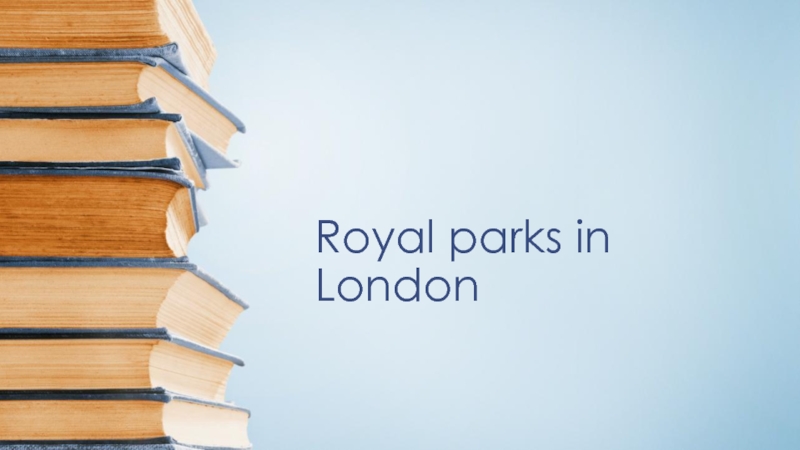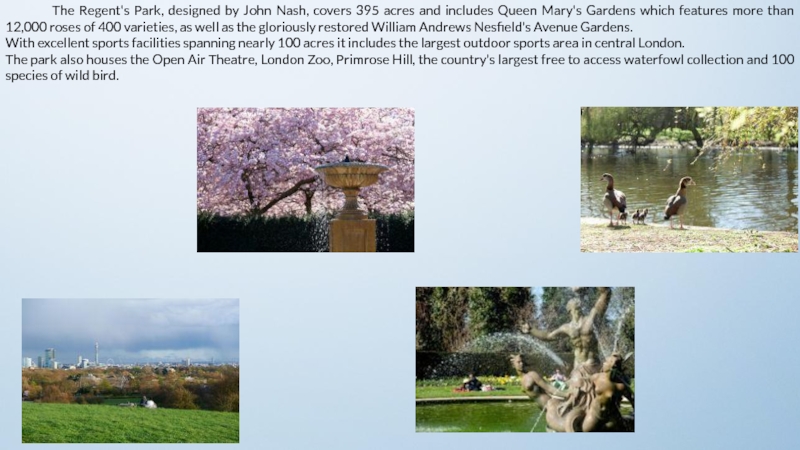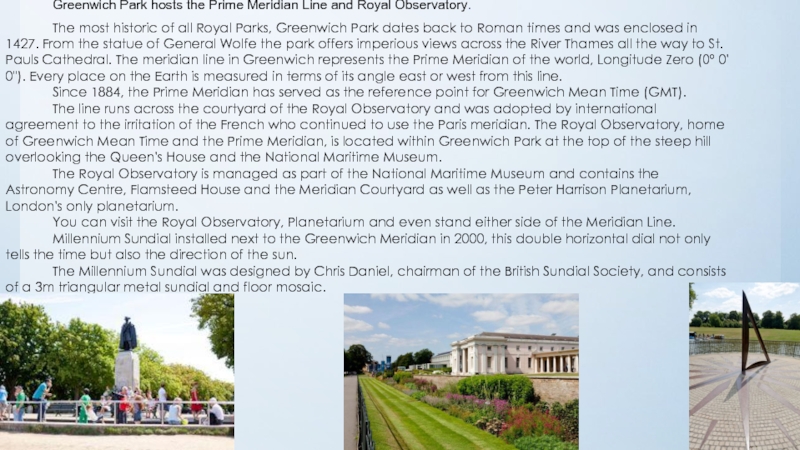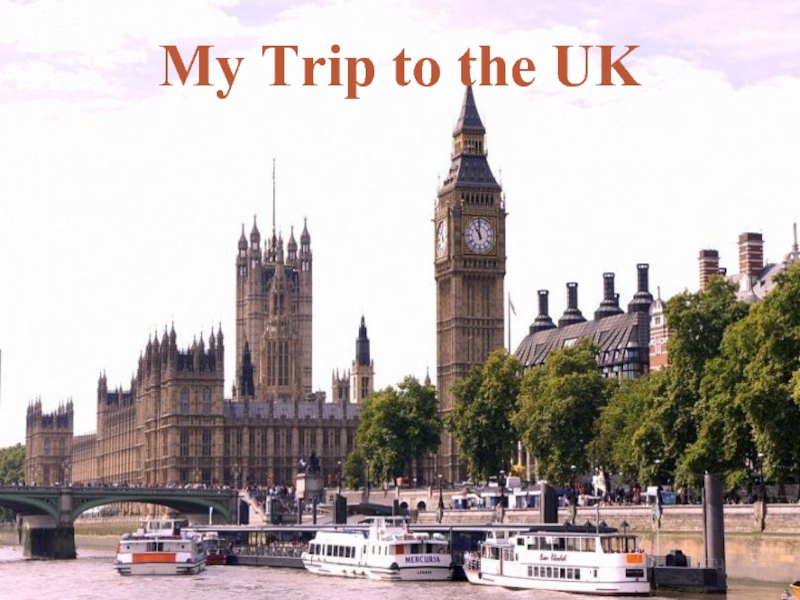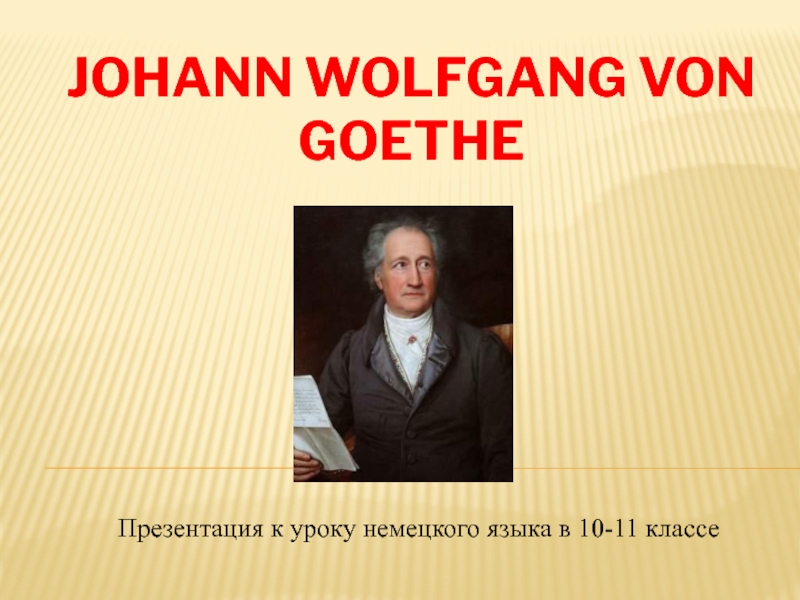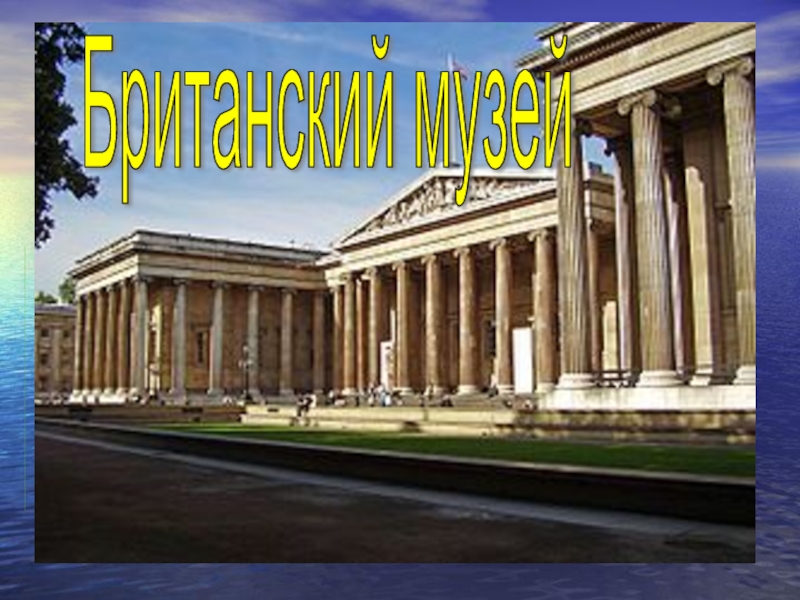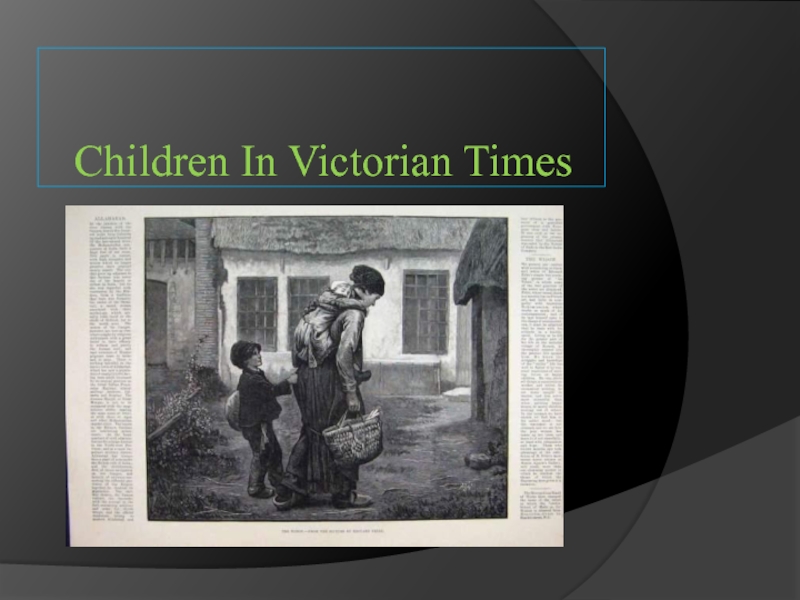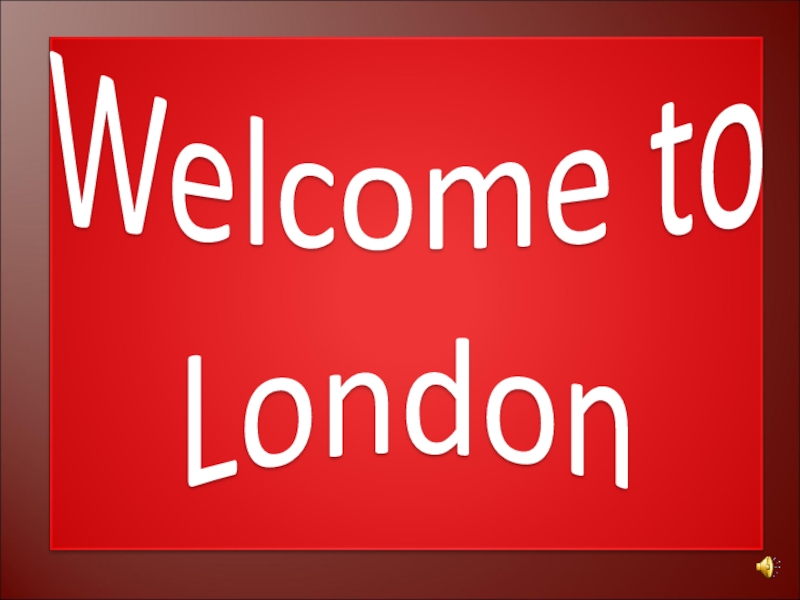Разделы презентаций
- Разное
- Английский язык
- Астрономия
- Алгебра
- Биология
- География
- Геометрия
- Детские презентации
- Информатика
- История
- Литература
- Математика
- Медицина
- Менеджмент
- Музыка
- МХК
- Немецкий язык
- ОБЖ
- Обществознание
- Окружающий мир
- Педагогика
- Русский язык
- Технология
- Физика
- Философия
- Химия
- Шаблоны, картинки для презентаций
- Экология
- Экономика
- Юриспруденция
Королевские Парки Лондона
Содержание
- 1. Королевские Парки Лондона
- 2. London is such a green city. There
- 3. The Regent's Park, designed by John Nash,
- 4. «Kensington Gardens» is the royal park in
- 5. Richmond Park is a landscape park and
- 6. Bushy Park initially was made for royal
- 7. St James's Park, the oldest of the
- 8. The Green Park, the smallest of the
- 9. Greenwich Park hosts the Prime Meridian Line
- 10. Victoria Tower Gardens, officially opened in 1914,
- 11. In the 1720s, members of the Grosvenor
- 12. Thank you for attention!
- 13. Скачать презентанцию
London is such a green city. There are a lot of parks in it. One of them is Hyde Park. There is the speaker‘s corner in it. The main sight of
Слайды и текст этой презентации
Слайд 3The Regent's Park, designed by John Nash, covers 395 acres
and includes Queen Mary's Gardens which features more than 12,000
roses of 400 varieties, as well as the gloriously restored William Andrews Nesfield's Avenue Gardens.With excellent sports facilities spanning nearly 100 acres it includes the largest outdoor sports area in central London.
The park also houses the Open Air Theatre, London Zoo, Primrose Hill, the country's largest free to access waterfowl collection and 100 species of wild bird.
Слайд 4«Kensington Gardens» is the royal park in London’s district Kensington,
around Kensington’s palace. It was part of Hyde Park before
1728 year.There is the statue of Peter Pan in this park. Also there is the street Kensington Palace Gardens along west part of the park, where the largest part of houses consists of deluxe mansions and embassies. Also there is memorial of prince Albert in “Kensington Gardens”.
Слайд 5Richmond Park is a landscape park and national nature reserve
of England on the south-west of London. This park is
the largest of royal parks in London. It was founded by Charles I in the XVII century, is open to the public free of charge. The park is habitat over 600 deer. It has about 30 ponds. Age of some oak is about 750 years.Слайд 6Bushy Park initially was made for royal sport. It is
now the home of Teddington’s club rugby and Teddington’s club
of hockey and 4 cricket’s clubs.Also there are ponds for fishing and ship-modeling sport, places for horse riding, plantations of trees and other plants, reserves of wild nature and herds of Red and Fallow deer.
The park has bushy house and national Physical Laboratory.
The park is also home to the famous Chestnut Avenue, a formal Baroque water garden and the beautiful Diana Fountain.
Слайд 7St James's Park, the oldest of the capital's Royal Parks.
The park includes The Mall and Horse Guards Parade and
is at the heart of ceremonial London, providing the setting for spectacular pageants including the annual Trooping the Colour.Слайд 8The Green Park, the smallest of the capital's Royal Parks.
The south border of the park is the Mall, and
the north border – Piccadilly Circus.It was a favorite place for duels of British aristocrats. Also the park hasn’t ponds. But it has “Bomber Command Memorial”, “Canada Memorial”, “Canada Gate” and “Memorial Gates”.
Слайд 9Greenwich Park hosts the Prime Meridian Line and Royal Observatory.
The
most historic of all Royal Parks, Greenwich Park dates back
to Roman times and was enclosed in 1427. From the statue of General Wolfe the park offers imperious views across the River Thames all the way to St. Pauls Cathedral. The meridian line in Greenwich represents the Prime Meridian of the world, Longitude Zero (0° 0' 0"). Every place on the Earth is measured in terms of its angle east or west from this line.Since 1884, the Prime Meridian has served as the reference point for Greenwich Mean Time (GMT).
The line runs across the courtyard of the Royal Observatory and was adopted by international agreement to the irritation of the French who continued to use the Paris meridian. The Royal Observatory, home of Greenwich Mean Time and the Prime Meridian, is located within Greenwich Park at the top of the steep hill overlooking the Queen's House and the National Maritime Museum.
The Royal Observatory is managed as part of the National Maritime Museum and contains the Astronomy Centre, Flamsteed House and the Meridian Courtyard as well as the Peter Harrison Planetarium, London's only planetarium.
You can visit the Royal Observatory, Planetarium and even stand either side of the Meridian Line.
Millennium Sundial installed next to the Greenwich Meridian in 2000, this double horizontal dial not only tells the time but also the direction of the sun.
The Millennium Sundial was designed by Chris Daniel, chairman of the British Sundial Society, and consists of a 3m triangular metal sundial and floor mosaic.
Слайд 10Victoria Tower Gardens, officially opened in 1914, lies at the
heart of Westminster, bordered by the Houses of Parliament, the
River Thames, Millbank and Lambeth Bridge.Victoria Tower Gardens is home to a number of memorials celebrating freedom. The park has its origins in the late 19th century as part of the improvement works associated with the re-construction of the Palaces of Westminster and the embankment of the Thames. The gardens were extended in the early 20th century and in the1920s the southern part of the park was redesigned as a children's play area. The gardens were further altered during the 1930s and 1950s to provide clear views towards the Houses of Parliament and to incorporate a number of high quality pieces of statuary.
